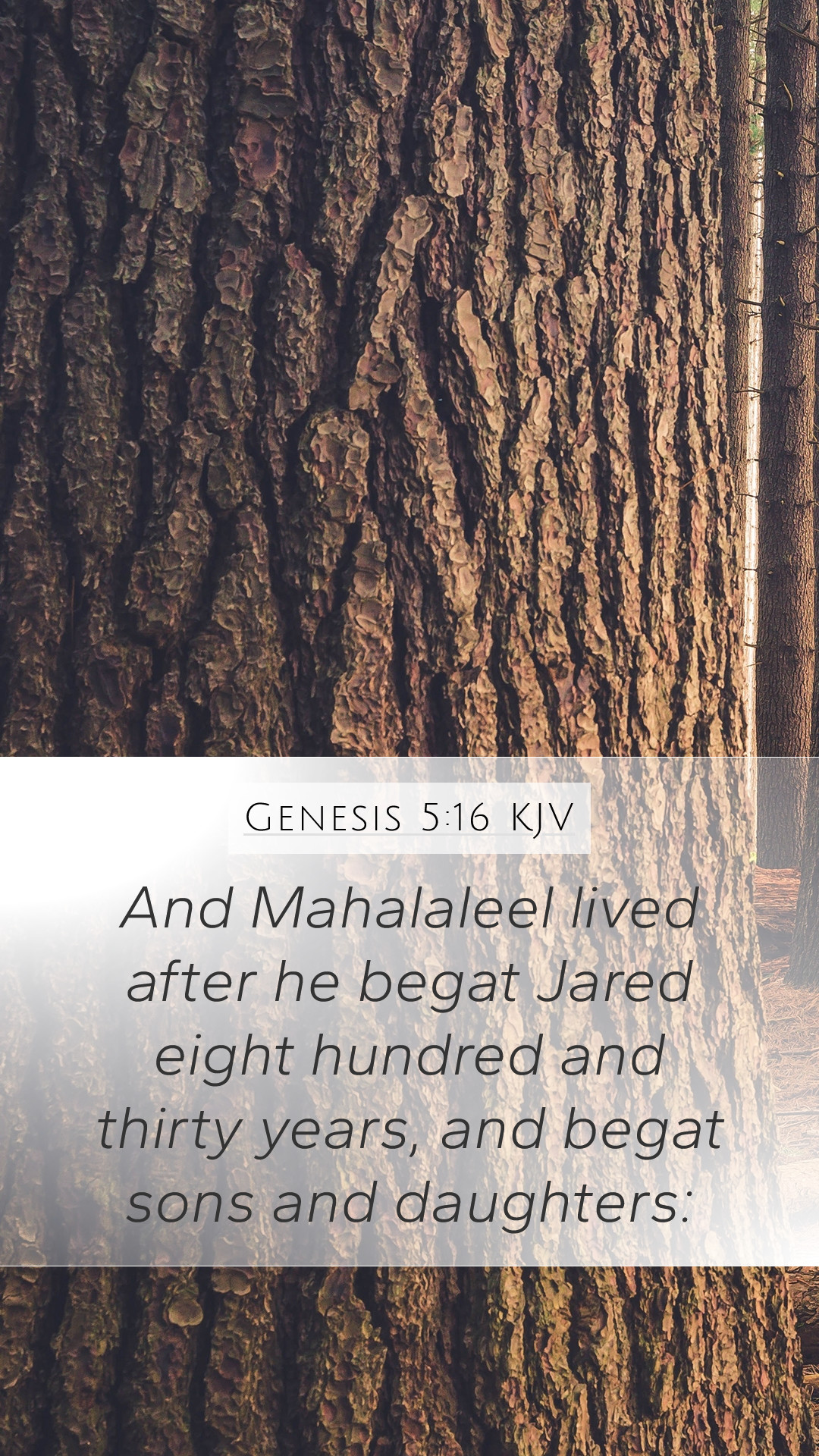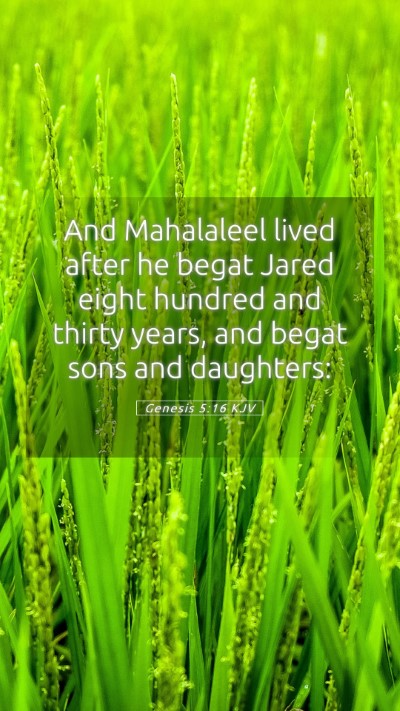Understanding Genesis 5:16 - A Comprehensive Bible Verse Commentary
Genesis 5:16 states, "And Methuselah lived an hundred eighty and seven years, and begat Lamech." This verse, while straightforward in its language, holds profound implications for the study of biblical genealogies and the themes woven throughout the Scriptures.
Insights from Public Domain Commentaries
To fully grasp the meaning of Genesis 5:16, we can draw upon the wisdom of notable commentators:
-
Matthew Henry:
Matthew Henry reflects on the significance of Methuselah's long life, emphasizing that his extremely advanced age of 969 years (the longest in the Bible) speaks to God's patience and continued offer of grace. Methuselah's life serves as a reminder that God is long-suffering, providing time for repentance before judgment.
-
Albert Barnes:
According to Albert Barnes, the genealogy listed in Genesis 5 showcases the lineage leading to Noah, highlighting the importance of Methuselah as a pivotal figure in apostolic history. Barnes notes that Methuselah is often regarded as a symbol of longevity and endurance, which can be viewed as indicative of God’s sustaining power over humankind.
-
Adam Clarke:
Adam Clarke discusses the context of the generation in which Methuselah lived, underscoring the moral decay of society before the flood. Clarke suggests that the naming of Lamech, Methuselah’s son, implies important prophetic elements about the future (such as the coming judgment). Clarke also mentions that the ages of these patriarchs represent not only physical years but also an era of God's interaction with humanity and the repercussions of sin.
Key Themes and Concepts
From these insights, several key themes emerge that enhance our understanding of Genesis 5:16:
- Longevity and Divine Patience: The extended life of Methuselah illustrates God's patience with a sinful world, which is a common theme in biblical narratives.
- Genealogy and Promise: This verse connects the lineage from Adam to Noah, signifying the faithful remnant that God preserves through generations.
- Prophetic Significance: Methuselah’s life and family's names carry prophetic undertones regarding future events—especially regarding judgment and redemption.
Application to Personal Faith
In contemporary application, believers are encouraged to seek Bible verse understanding in order to draw lessons from these ancient texts. The life of Methuselah serves as a reminder of God's mercy, encouraging individuals to take seriously their own walk with God, and the impact of their lineage.
Related Bible Cross References
- Hebrews 11:5 – The faith of Enoch, who walked with God.
- Luke 3:37 – The genealogy of Jesus, linking back to these patriarchs.
- Matthew 24:37-39 – The days of Noah as a warning for today.
Conclusion
In conclusion, Genesis 5:16 encapsulates powerful lessons about God's character and His relationship with humanity. By engaging deeply with the historical and theological context of Scripture, believers can gain invaluable Bible study insights that enrich their understanding and application of the Word of God in their lives. Utilizing various Bible study tools and participating in Bible study groups can further enhance this journey of discovery.
Further Reading and Study Suggestions
- Consider engaging with Bible study guides that explore genealogical themes in Genesis.
- Participate in online Bible study courses focused on Old Testament narratives.
- Explore the significance of Biblical numerology in the ages of the patriarchs as part of Bible study lessons.


